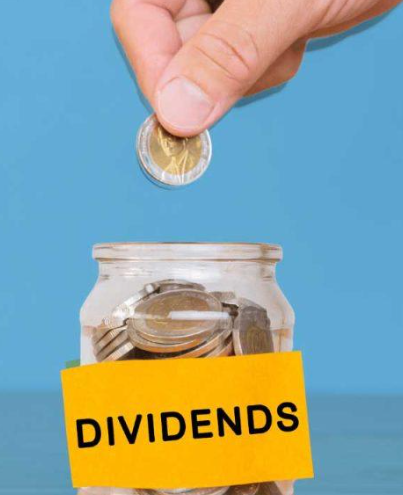Dividends are a common way for shareholders to receive a portion of a company’s profits, but they come with tax implications that every investor should understand. Whether you’re a business owner paying dividends or a shareholder receiving them, it’s crucial to know how dividend taxation works in the UK. This guide will explain the key points, including corporation tax, dividend tax rates, and tax-saving strategies.
What Are Dividends?
Dividends are payments made by companies to their shareholders from the profits of the business. These payments can either be in cash or reinvested into additional shares. The key thing to note is that dividends are only paid after the company has covered its business costs and taxes. If there aren’t enough profits, the company cannot issue dividends, and doing so without sufficient profits is considered illegal. Dividends are generally distributed based on the shareholder’s ownership stake in the company.
In a company with a single shareholder, like a sole trader business, the sole owner receives all the dividends. Dividends are often paid quarterly or annually, but frequent dividend payouts can raise suspicion with HMRC, potentially leading to them being treated as a salary, which could increase your tax liabilities.
Do You Pay Corporation Tax on Dividends?
No, you do not pay corporation tax on dividends. Corporation tax is only applied to the company’s profits before the dividends are distributed. Once the tax is paid on these profits, dividends are then issued without any additional corporation tax being due. Dividends are not considered a business expense for the purposes of corporation tax.
However, the company must first pay all its other tax liabilities, such as VAT, and settle business expenses (like employee salaries and insurance) before any dividend payments are made. Dividends are issued only after these obligations are met.
What Taxes Do You Pay on Dividends?
While there is no corporation tax on dividends, shareholders must pay income tax on dividends above the tax-free allowance. This is known as the dividend tax. Additionally, shareholders may need to pay capital gains tax in certain situations, such as when dividends are reinvested into more shares and later sold for a profit.
Dividend Allowance
For the 2024/25 tax year, the tax-free dividend allowance has been reduced to £500, down from the previous £1,000. This means that any dividend income above £500 will be subject to income tax. If you are receiving more than this amount, the excess will be taxed based on your income tax band.
Pro Tip:
Since the dividend allowance has been halved, it is now more important than ever to plan how you withdraw dividends to minimize your tax liability. Consulting with a tax advisor can help you find the most tax-efficient way to structure your dividends.
Dividend Tax Rates
The tax rate on dividends depends on which income tax band your total income falls into. For the 2024/25 tax year, the dividend tax rates are as follows:
- Basic Rate: 8.75% on income between £12,571 and £50,270
- Higher Rate: 33.75% on income between £50,271 and £125,140
- Additional Rate: 39.35% on income over £125,141
To determine how much tax you owe on your dividends, you must combine your dividend income with any other income you receive. Your total income will then be used to calculate which tax band you fall into and the applicable tax rates.
Tax-Saving Tips for Dividends
Here are several ways to reduce your dividend tax liability and ensure you remain compliant with HMRC:
- Maximise Your Annual Dividend Allowance: Try to keep your salary lower and take the rest of your income as dividends. This strategy can reduce the amount of income tax you pay.
- Avoid Frequent Dividends: HMRC may consider frequent dividend payments as disguised salaries, which could increase your tax bill. Keep the dividend payments reasonable and spaced out.
- Separate Salary and Dividends: Ensure that your salary and dividend payments are distinct. This makes it easier to provide clear documentation in case of an audit.
- Consider Tax-Efficient Accounts: Use tax-efficient savings accounts like ISAs (Individual Savings Accounts), which allow you to invest up to £20,000 annually without paying tax on the dividends or gains. Any dividends paid on shares held within an ISA are completely tax-free.
- Invest in VCTs: Dividends from Venture Capital Trusts (VCTs) are not taxed, though VCTs are a higher-risk investment. If you’re considering VCTs, seek professional advice to ensure the investment is aligned with your financial goals and risk tolerance.
Conclusion
Understanding how dividends are taxed in the UK is essential for making the most of your investment. While dividends are not subject to corporation tax, shareholders do face income tax on dividends above the £500 allowance. To reduce tax liabilities, focus on maximizing the dividend allowance, using tax-efficient investment accounts, and ensuring clear records. Always consult with a tax professional to navigate complex tax rules and make the most of your dividend income.



